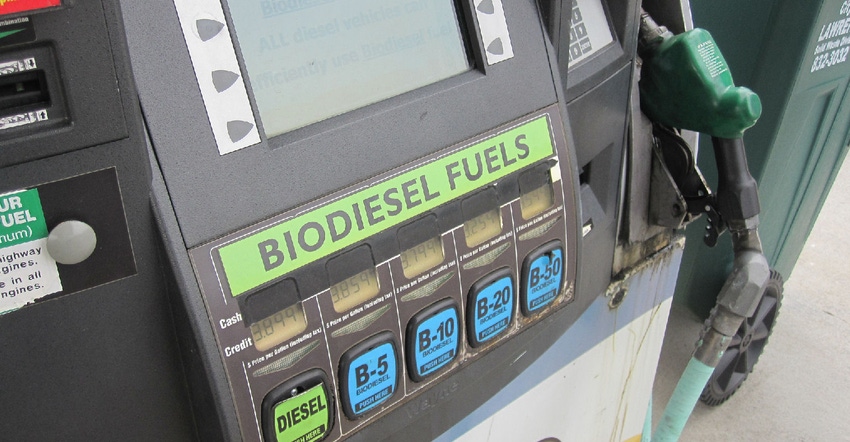Biodiesel Board challenges EPA’s interpretation of 2014-16 RFS and use of waiver authority.
April 24, 2017

On Monday, the National Biodiesel Board (NBB) argued before the U.S. Court of Appeals for the District of Columbia Circuit regarding the Renewable Fuel Standard (RFS) for 2014-16. NBB challenged the U.S. Environmental Protection Agency’s interpretation and use of its waiver authority under the RFS statute.
“Today’s case provides a strong opportunity to defend higher advanced biofuel volumes. Clear market signals from more robust EPA requirements will encourage continued growth in America’s advanced biofuel: biodiesel,” NBB vice president of federal affairs Anne Steckel said.
Various groups are seeking to force changes to the fuel volumes required for compliance years 2014-16 and the biomass-based diesel volume for 2017. Several cases were consolidated into the one considered Monday. NBB supported EPA on the cellulosic ethanol and biomass-based diesel volume arguments by pointing to D.C. Circuit precedent that affirms EPA’s authority and lack of harm to obligated parties. While joining various ethanol groups on arguments related to EPA’s general waiver authority, NBB also raised numerous arguments related to EPA’s advanced biofuel volumes.
Historically, EPA has not deviated from the advanced biofuel volumes required by the RFS statute, even if the agency lowered other kinds of fuel volumes (such as cellulosic). For the first time, EPA reduced the volumes required for advanced biofuels for 2014-16. This was a setback to the advanced biofuel industry, because U.S. biodiesel responds to increased demand with increased production. NBB argued that EPA exceeded its authority and failed to move the advanced biofuel program forward as Congress envisioned.
Congress sought to increase production and stimulate investment, not simply follow the market and maintain the status quo. Reducing the required volumes based on demand-side considerations undermines continued investment and the innovation that has successfully diversified feedstocks, increased efficiencies and lowered costs.
“There is room for more aggressive growth; the U.S. biodiesel industry can do more. We hope that the court will be persuaded by our arguments and that EPA will put in place more aggressive advanced biofuel requirements moving forward,” Steckel said. “We look forward to working with the Trump Administration to realize the potential to support additional jobs and investment in rural economies.”
The RFS — a bipartisan policy passed in 2005 and signed into law by President George W. Bush — requires increasing volumes of renewable fuels to be blended into the U.S. fuel stream. The law is divided into two broad categories: conventional biofuels, which must reduce greenhouse gas emissions by at least 20%, and advanced biofuels, which must have a 50% reduction. Biodiesel is the first advanced biofuel to reach commercial-scale production nationwide and has made up the vast majority of advanced biofuel production under the RFS to date.
Made from a diverse mix of resources such as recycled cooking oil, soybean oil and animal fats, biodiesel is a renewable, clean-burning diesel replacement used in existing diesel engines. According to EPA, it reduces greenhouse gas emissions by 57-86% compared with petroleum diesel, qualifying it as an advanced biofuel under the RFS.
NBB also has a trade case pending before the U.S. Department of Commerce and the International Trade Commission on biodiesel imports.
NBB is the U.S. trade association representing the biodiesel and renewable diesel industries, including producers, feedstock suppliers and fuel distributors.
You May Also Like

.png?width=300&auto=webp&quality=80&disable=upscale)

